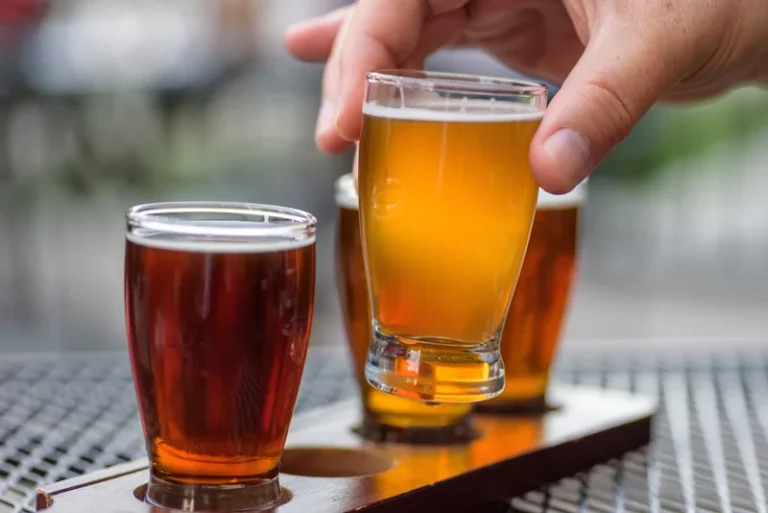
They may feel as if they are failures and may have no idea what to do. Chances are, their family members have already noticed their alcoholic tendencies and may have had multiple talks with them, but still, they may be resistant to reach out for help. Binge drinking, or drinking a substantial amount of alcohol in a short amount of time, is generally believed to be the first stage of the stages of alcoholism. Binge drinking often occurs when people start experimenting with drinking. They may not know how much they can tolerate and drink so much that they become extremely drunk and may even pass out (lose consciousness). It’s evident when someone is at the end-stages of their alcohol addiction.
Signs and Symptoms of Middle-Stage Alcoholism
- If you notice they continue drinking heavily and blacking out, you have a right to be concerned.
- Middle-stage alcoholism is when their drinking problem reaches more serious levels.
- In many situations, patients will receive small amounts of medication to ensure that any withdrawal symptoms are mitigated as withdrawing from alcohol without medical assistance is dangerous.
Alcohol dependence also means that you have developed a tolerance to drinking. As a result, you may have to drink larger quantities to get “buzzed” or drunk. Knowing the signs and symptoms of each stage can aid you in seeking help before your problem turns into dependence and addiction. Between 90 and 100 percent of alcoholics develop a fatty liver, which can progress to cirrhosis. Stopping is impossible at this point without professional help because of the severe and potentially life-threatening withdrawal symptoms that would occur if they quit cold turkey. By this stage, their drinking is taking an obvious physical toll as well.
Recovery Coaching

The key to identifying this stage of the disease is to understand the social aspects of it. The middle alcoholic stage marks an intensification in alcohol dependence and its negative impacts on life. At this stage, consequences from substance abuse become increasingly severe, impacting physical health as well as mental health. Once you have admitted that you’re suffering from alcohol use disorder, it’s important that you consider all of your treatment options. No matter what stage of alcoholism you’re in, receiving treatment early on can help you keep severe side effects at bay. In the beginning stages of alcoholism, drinking escalates and the individual develops an increased tolerance for alcohol.

The Cycle of Alcohol Addiction
Drinking now becomes a relentless necessity, done to stave off severe withdrawal symptoms. You may experience a pronounced loss of control over your drinking habits, meaning that you’re completely dependent on alcohol. What starts as casual drinking advances into dependence and addiction over time. The majority of people who struggle with alcohol addiction, or alcohol use disorder (AUD), took months or years to reach that point. The early stages of alcoholism are often difficult to detect as there may not be any obvious impairment or dysfunction. During this stage, the addicted person’s body is building up a tolerance to alcohol, so they may be able to drink larger quantities without losing control.
What Happens During The Recovery Stage?
- Frequent, uncontrolled alcohol abuse eventually leads to problem drinking.
- Additionally, no two individuals have identical reasons that lead them to develop alcohol use disorder.
- Individuals in this stage meet at least five to six criteria from the DSM-5 criteria, indicating a significant progression toward severe alcohol use disorder.
- Individuals in this stage may not be drinking every day or even every week.
- Many thought that drinking problems were the result of weak willpower or a lack of self-control.
This CME/CE credit opportunity is jointly provided by the Postgraduate Institute for Medicine and NIAAA. There is no such thing as not being “alcoholic enough.” There is no reason to wait until you feel like your 5 stages of alcoholism drinking is bad enough to warrant treatment. You can ask for help at any point, whenever you realize your drinking has gone too far. Treatment is most beneficial for those at the point of middle-stage alcoholism.
These physiological changes contribute to the increasing tolerance seen in early-stage alcoholics. Despite heavy alcohol consumption, they may show few signs of intoxication https://ecosoberhouse.com/ or ill effects from drinking, such as a hangover. And as tolerance builds, they’ll begin to drink more and more to achieve the same buzz or high they’re used to.
Problem Drinking
Stage 3 – middle stage (quite serious problem drinking)



